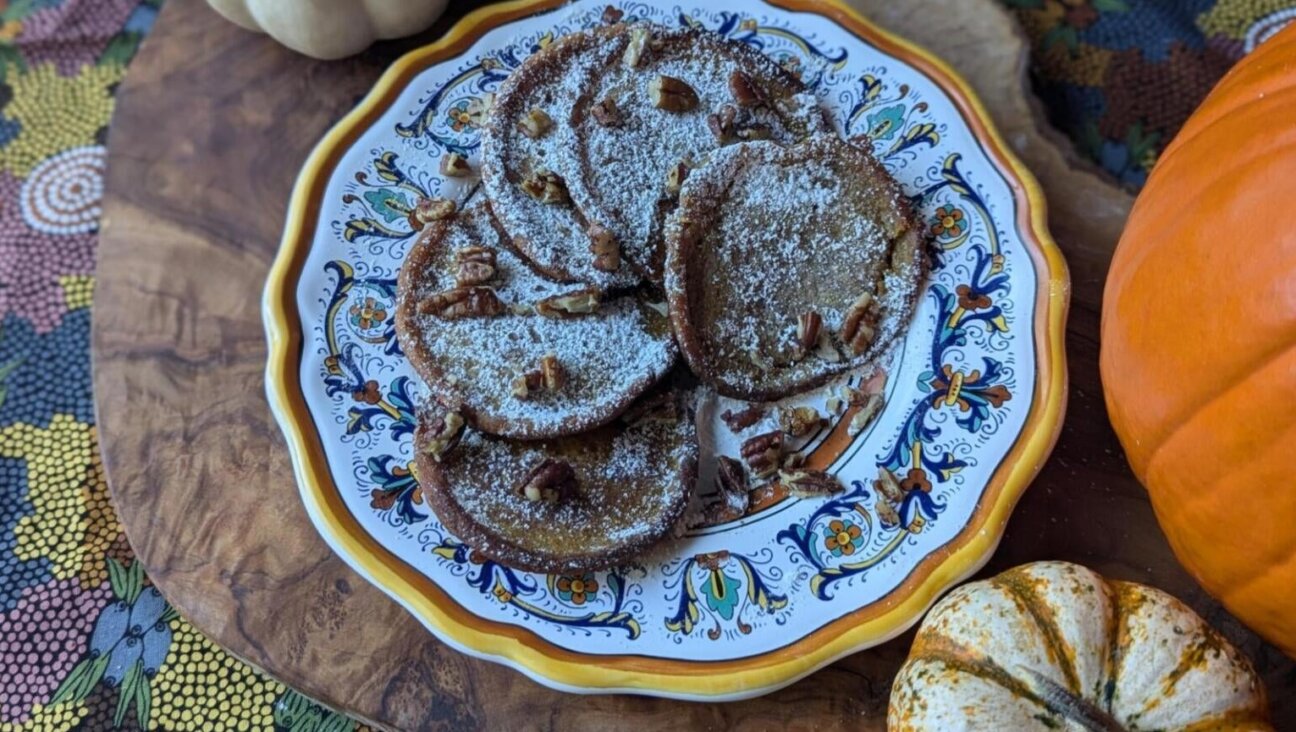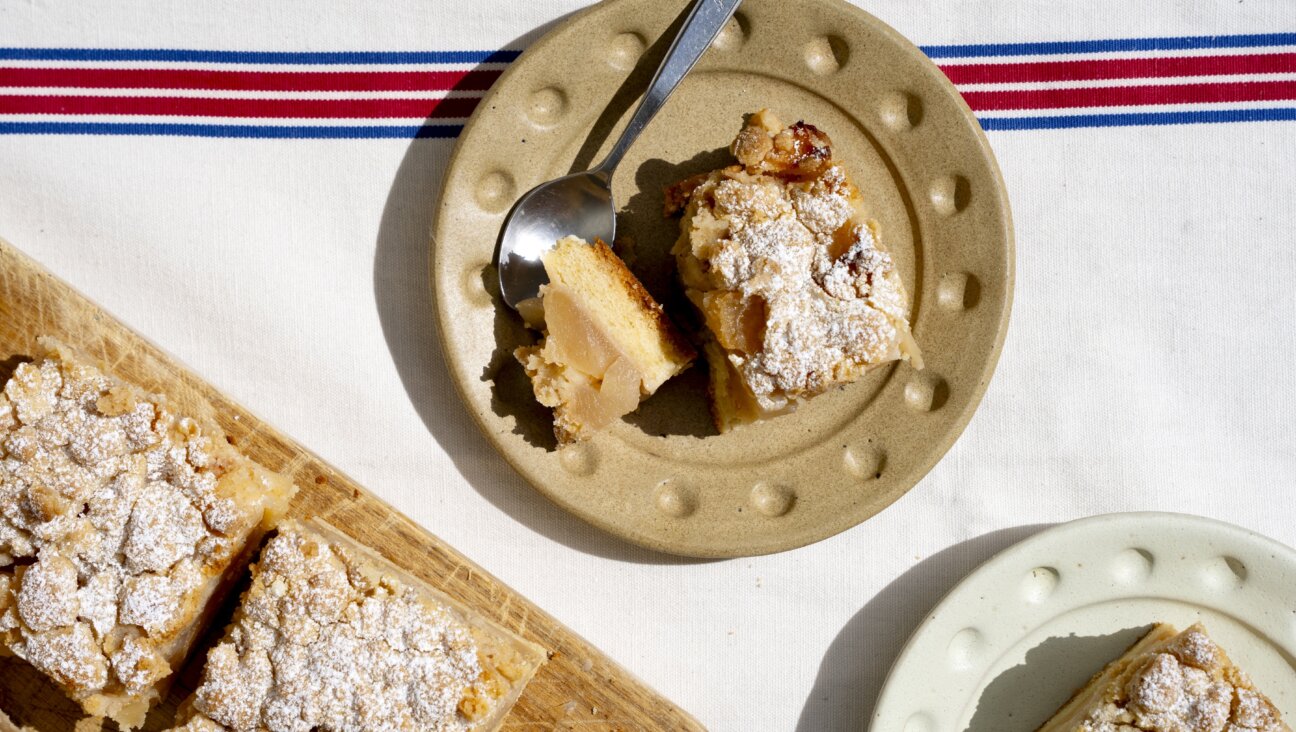The spinach frittata that connects me to my Sephardic grandmother

Graphic by Angelie Zaslavsky
In one of the scenes from my book, “The Poetry of Secrets,” Isabel, the main character is served fritada espinaca, or spinach frittata, at a Shabbat dinner, her first one since she has been captured by the Spanish Inquisition.
My choice of that food was deliberate. It’s an homage to my grandmother. She was born Columbia Gormezano, though she went by the name Corene Gormé. Her mother Fortuné came from Istanbul, and her family before that, from Spain.
Grandma Corene spoke Ladino and enjoyed singing to the Spanish record albums of her more famous sister, Eydie. She loved me as her own, never blinking when her son married my mother, a widow with two children, ages 8 and 10. She would say things like “Vaya con leche y miel” — “Go with milk and honey” and “horasbuenas” when we sneezed or coughed. She made the fluffiest Spanish rice, the crispiest biscochos, and the flakiest borekas.
But the family favorite were the spinach cakes. She would arrive at every holiday dinner, paper plate in hand, a tower of squares stacked high on top, covered in aluminum foil. We would ration them so they would last longer, but they always disappeared in a day or two. My favorite was eating them cold, right out of the fridge for breakfast.
One day, my sister, my aunt, and I gathered in her apartment in the Barrington Plaza for a cooking lesson. I took notes, writing down her personal touches on empty bank withdrawal slips she had lying around. A bit more feta than cottage cheese. Not too much oil on the pan. Spread the matzah meal just so. She gave me a copy of “Cooking The Sephardic Way,” published by the Sisterhood of Temple Tifereth Israel, Los Angeles, in 1971. It’s inscribed to me in her flowery cursive, “To Cami with love, Grandma Corene.”
Her married name was Cohen, my maiden name. In my jewelry drawer, I keep her sparkly brooch, marked with the initials CC, and on my cookbook shelf I keep that recipe collection, with its telltale red plastic comb binding facing out for easy access.
Now, for holiday dinners or just because I want to take my dad back in time, I make a batch. And no, they still don’t last more than a day.
Grandma Corene’s Fritada Espinaca

By Cambria Gordon
Ingredients
2 packages frozen chopped spinach, completely thawed and drained (use your hands to squeeze out the water)
6 eggs beaten plus one for topping
1 tsp salt
3 Tbsp plus 1/4 cup olive oil divided
1/4 cup milk
6 – 8 oz. combined cheeses (cottage, crumbled feta, grated Romano or Parmesan)
1/3 cup of matzo meal or ground-up cracker crumbs (or corn meal if you prefer gluten-free)

By Cambria Gordon
Instructions
Pre-heat oven to 400 degrees
1. Combine spinach, cheese, egg and 2-3 tablespoons of matzoh meal thoroughly. If it’s too water-y, add a bit more matzoh meal. Let stand 15 minutes while you prepare a 9” square baking pan as follows:
2. Sprinkle a thin layer of matzo meal over the bottom and add some olive oil to cover. Place in oven to lightly brown. Watch carefully not to burn.
3. Remove from oven and pour mixed ingredients into pan, distributing evenly.
4. Prepare the topping: Combine some matzo meal (or cracker meal or corn meal) with grated Romano or Parmesan. Sprinkle it over the top.
5. Beat together well: 1/4 cup olive oil, 1/4 cup milk, 1 egg and pour over the entire fritada.
6. Bake for 1/2 hour or until brown on top and oil is cooking around mixture in a light boil.
7. Remove from oven and carefully pour out excess liquid, if any. Lower oven to 325 degrees and replace pan until fritada is crisp on top.
8. Let cool before cutting into squares. Serve at room temperature.
Cambria Gordon is the author of The Poetry of Secrets, published by Scholastic. She splits her time between Madrid and Los Angeles.
















